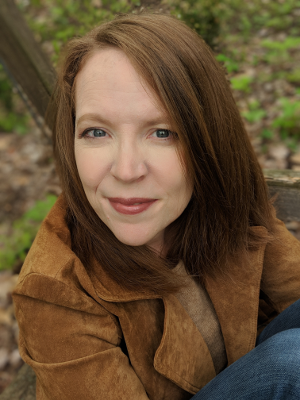Stress-Reducing Belief #4: The Good Weather Factor
Lesson 4
Hi there, Pam Coburn-Litvak here.
There’s a well-known psychological concept called “locus of control.”
When things go wrong, those with an “outer” locus of control always look for something or someone else to blame. “No, you don’t understand,” they protest, “It’s all THEIR fault. I had nothing to do with it.”
Here’s the problem. Those who constantly want to play the blame game not only rescind personal responsibility over what went wrong; they also relinquish any personal control to fix it.
On the other hand, those with an “inner” locus of control recognize and own their own part in any situation. This gives them a whole lot more control over the outcome, including how it affects them emotionally.
The fourth stress absorbing belief is: I will accept personal responsibility for my happiness.
Dr. Harold Greenwald had been a practicing therapist for 30 years when a client came to see him with an issue he had never heard before.
This client didn't have any big problem. She considered herself a happy person and was looking for suggestions to become even happier.
No one had ever asked him that before. Dr. Greenwald realized at that moment that he had become an expert on misery.
What makes people happy?
He didn't have a clue.
So, he became a happiness researcher and wrote a book called The Happy Person. He describes a surprising discovery at the beginning of his book:
"My most surprising discovery was how many of the joyous, satisfied people I interviewed for this book had undergone traumas, frustrations, and defeats remarkably similar to my misery-laden patients.”
Huh. Apparently, happiness has nothing to do with a miraculous lack of problems.
He continues: "The happy people…had all chosen not to be victims…They had chosen to be happy…Most often the decision was made on the heels of a severe emotional or physical crisis in their lives--a near-fatal accident, or a disastrous divorce, etc.
"Now, these are clearly the circumstances many sad people use to explain their unhappiness. So why weren't these people sad?
"Again and again I found that they made use of such circumstances to reexamine their way of looking at the world…They then decided, consciously or unconsciously, they were responsible for their own happiness." 1
None of us are spared from the trials of life. But some people look at their trials differently. The Chinese character for “crisis” is a compound word—the first character means “danger,” and the second means “opportunity.”
When resilient people encounter crisis, they think opportunity. They view it as an incentive to growth. They do all they can to turn every experience into some kind of achievement.
When you consistently choose to be a happy person, your emotions will eventually align with your choice.
That truth has awesome implications for managing and resolving stress.
1. Dr. Harold Greenwald and Elizabeth Rich, The Happy Person (Avon Books: New York, 1984), pp. 15-17.
Music
Windswept by Kevin MacLeod
Link: https://incompetech.filmmusic.io/song/4629-windswept
License: https://creativecommons.org/licenses/by/4.0/
Images by the following Unsplash and Pixabay contributors (in order of appearance): Joe Gardner, Clay Banks, Jamison McAndie, Steve Halama, Allef Vinicius, Natalya Letunova, Guillerme Stecanella, Jayson Hinrichse, Riccardo Annandale, Nong Vang, Joanns Kosinska, Brandon Lopez, Pro Church Media, Marcus Wallis, Rhett Wesley, Alla Biriuchkova, Dexter Fernandes, Diego Ph, Yeshi Kangrang
Dr. Pamela Coburn-Litvak has published research articles on exercise and stress in Neuroscience and Neurobiology of Learning and Behavior. Her latest book, Leaving the Shadowland of Stress, Anxiety, and Depression, was published in 2020.
After receiving a Ph.D. in Neurobiology and Behavior from the State University of New York at Stony Brook, she served as both Assistant Professor of Physiology & Pharmacology and Special Assistant to the Vice President for Research Affairs at Loma Linda University in Loma Linda, California. She then joined the Biology department at Andrews University and developed courses in human physiology as well as the neurobiology of mental illness. She also founded Rock @ Science LLC, a company that specializes in health and science education and web development. She co-developed the brain and body physiology segment of the Stress: Beyond Coping seminar with its creator, Dr. William “Skip” MacCarty, DMin.
Dr. Coburn-Litvak currently lives in California with her husband. Their two daughters are mostly grown and attending school elsewhere.
When she’s not studying or teaching about stress, she enjoys stress-relieving activities like puttering around the garden, taking nature walks with her family, knitting, cooking, and reading.


